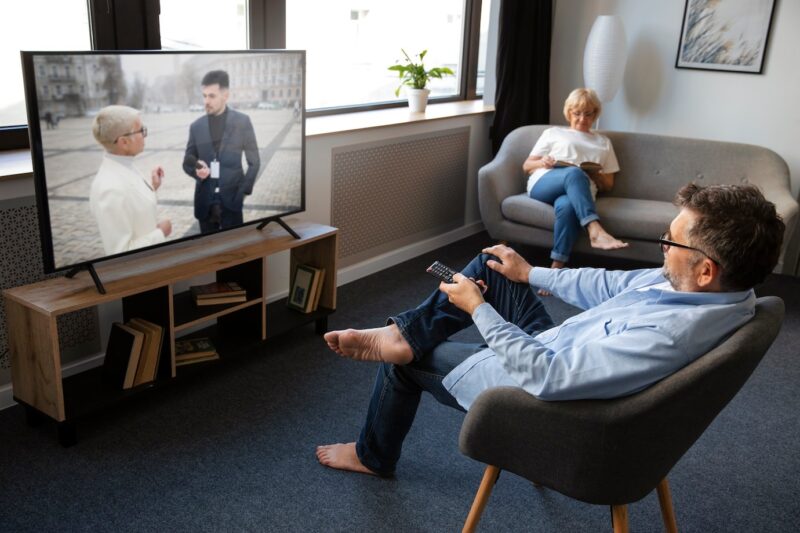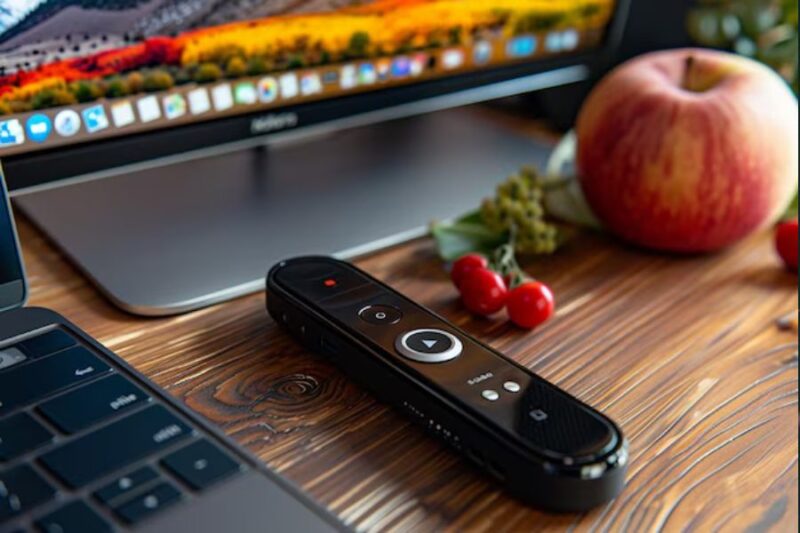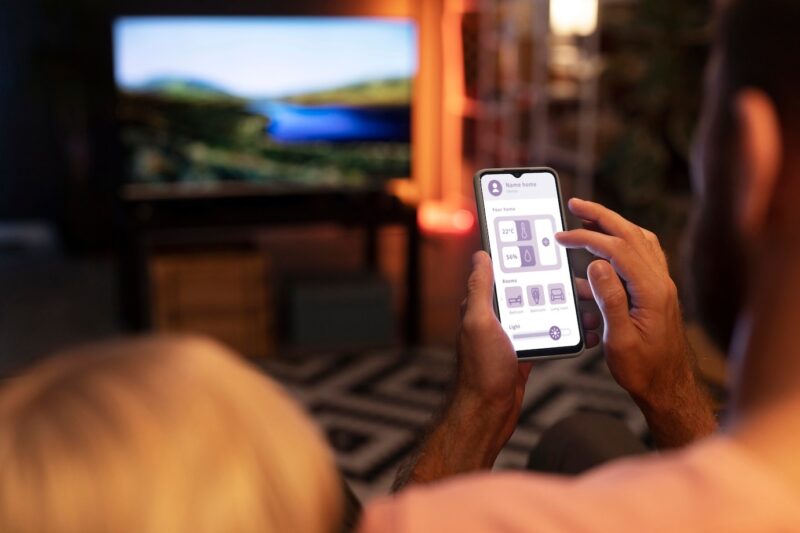I used both IPTV and traditional TV providers over the past year, and my experience helped me figure out which option suits me best. At first, I stuck to the familiar path—signing up with a popular traditional TV service.
It had been the norm for so many years, and honestly, I wasn’t in a rush to change. But soon, I heard about IPTV, a newer option that seemed to be shaking things up. So, I decided to try it out too, comparing it directly to what I was used to.
Each service had its perks, but I noticed some big differences. Whether you’re on the fence like I was or just want to know more before switching, here’s a breakdown of my experiences with both.
Key Points:
- Traditional TV offers familiarity and ease of use.
- IPTV provides greater flexibility and channel variety.
- Cost differences between the two can vary.
- Picture quality and reliability are key considerations.
- IPTV allows access to international content easily.
My Experience with Traditional TV

For years, I used a traditional TV provider. They offer a set number of channels, and I was used to the service. The simplicity of having a cable box, flipping through channels, and sticking to a viewing schedule felt reliable. I liked how it was all laid out in a straightforward way. I didn’t need to worry about complex setups or technical issues.
The biggest advantage was the ease of access. I didn’t need any additional equipment beyond the standard cable box that came with the subscription. I simply plugged it in, and everything worked as expected. Live events, local channels, and news stations were all available, which kept me tied to that service for years.
Trying Out IPTV
After hearing more about IPTV, I became curious. It promises greater flexibility, so I decided to try it. I started by exploring Sverige IP TV, a service known for providing a wide range of channels and shows. It offers worldwide channels and a vast movie library, which seemed interesting to me right from the start.
IPTV changed the way I thought about TV. With it, I wasn’t tied to a rigid schedule. I could watch shows on-demand or tune into live broadcasts when it suited me. It meant I had more freedom to access what I wanted when I wanted. Unlike traditional TV, there were no limits to channel availability or genres.
The range of content blew me away. The number of movies, series, and channels surpassed what I was used to. Traditional TV can’t compete with the thousands of available options.
Cost Considerations
One of the first things I noticed was the cost difference. Traditional TV providers often come with package deals, but the cost can add up with extra channels, equipment fees, and taxes. The price for IPTV is more transparent. There are no hidden fees. You know upfront how much you’re paying for the service.
IPTV is generally more affordable. I was able to access a wide range of international content that would have cost much more with a traditional provider. And even when I factored in some minor equipment costs, like setting up a streaming box, the long-term savings made it worth the switch.
Picture Quality and Reliability

This is where things get tricky. With traditional TV, the picture quality was consistent, provided the signal was good. But whenever there were storms or issues with the cable provider, the screen would glitch or freeze. That’s something I didn’t deal with when using IPTV.
IPTV depends on the quality of your internet connection. If you have a strong, stable connection, the picture quality can be excellent. Many providers even offer up to 4K resolution, and I noticed the difference when I compared it side-by-side with my traditional TV. The clarity, especially with live sports and movies, was noticeably better on IPTV.
That said, if the internet goes down, so does IPTV. However, I found that my internet was stable enough to make IPTV work for me.
Flexibility and Freedom of Choice
IPTV gives you the freedom to choose how, where, and when to watch TV. I found that I could stream shows on my phone, laptop, or tablet, and even cast it to my TV. That meant I wasn’t restricted to sitting in one place to watch my favorite shows.
The range of devices IPTV works on is one of its biggest advantages. Traditional TV can’t match that. You need a specific setup, and that limits where and how you can watch TV. IPTV opened up a whole new world of possibilities for me, making it more adaptable to my lifestyle.
What Traditional TV Offers That IPTV Doesn’t

There are still a few advantages to traditional TV. For instance, local channels and sports networks are more consistently available. I noticed that with IPTV, you sometimes have to search for channels or use third-party apps to find certain broadcasts. Traditional providers often bundle local channels and make it easier to access them directly.
Also, there’s the familiarity factor. If you don’t want to deal with technology or internet issues, a traditional provider might still be more suitable. It’s simple, easy to set up, and doesn’t require much technical know-how.
My Final Thoughts
After trying both, I found that IPTV offers more flexibility, content, and value for the price. Traditional TV has its benefits in terms of ease and consistency, but IPTV provides a wider range of content that fits better with modern viewing habits.
In the end, IPTV suited my needs more because I like the flexibility to watch anything, anytime, and anywhere. If you’re content with traditional channels and don’t mind sticking to a more rigid schedule, a traditional provider might still make sense. But if you want more freedom and content variety, IPTV is the way to go.

